++ 50 ++ pmbok phases of project management 916948-Five phases of project management pmbok
The 5 phases of the project management life cycle explained 1 Project initiation The first phase of the project management process is the conception of the project This is where ideas are explored, preliminary research gets done, and prospects are determined A project manager decides and implements the work instructions, procedure, network plans, and project management software for the execution of a project PMBOK concept of the project management cycle It's inevitable to discuss project life cycle while talking about project management phases The project phases make up a project life cycle and the phases arePhase 2 Project Planning;
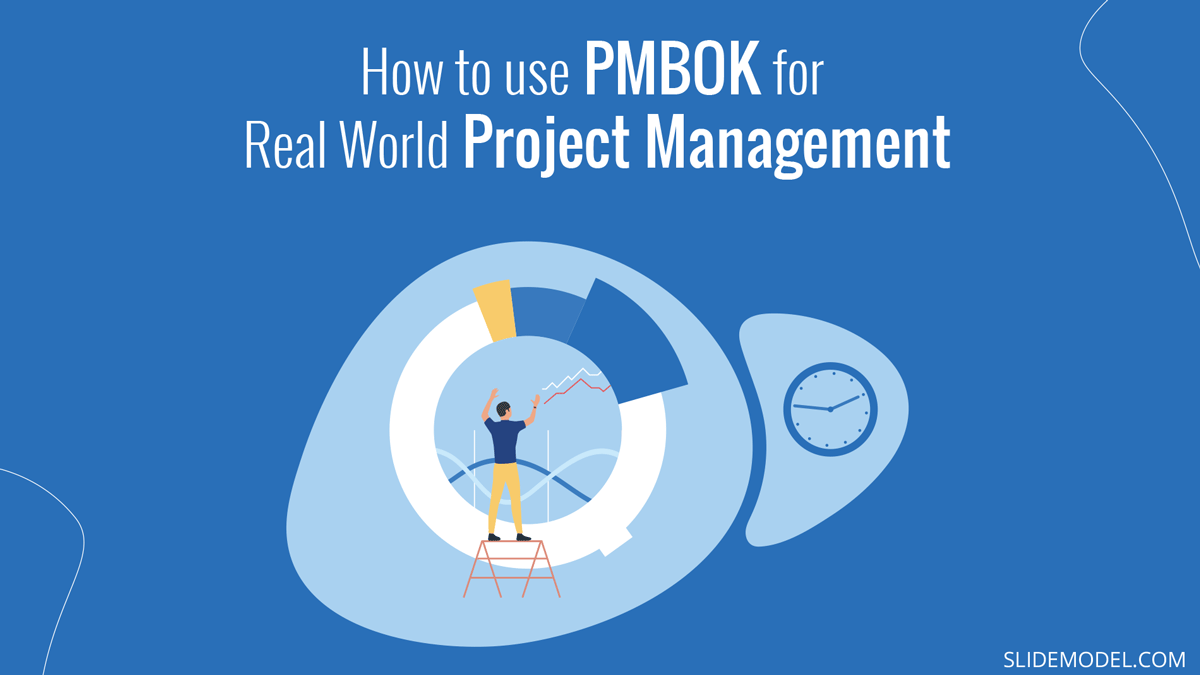
How To Use The Pmbok Guide In Practical Project Management Slidemodel
Five phases of project management pmbok
Five phases of project management pmbok- Here are the five life cycle phases of project management 1 Initiation Phase This is the starting point of the project The project gets conceptualized in this phase In this stage, the following steps are implemented The project idea is either created or the client approaches the idea The idea can be the solution to an existing problem or a new opportunity in business (eg,According to PMBOK, these are 'processes that are necessary to monitor, evaluate, and control the progress and performance of a project, identifying all the areas in the plan that require changes, and initiating those changes' Examples of activities in this phase are managing costs, scheduling, and the focus on scope 5 Closure




Phases Of Project Management Based On Pmi Source Author Download Scientific Diagram
Dividing your efforts into these five project management phases can help give them structure and simplify them into a series of logical and manageable steps Phase 1 Project Initiation The first phase of the project management life cycle is project initiation This is where the project's value and feasibility are measured Project managers typically use two evaluation The project must be divided into smaller steps to achieve the project goals and objectives That is the reason the project is splatted into different phases which are initiation, planning, execution, closing, and finally monitoring All these phases collectively represent the path to follow and makes things easy and achievable 2 Initiation phaseThe Project Management Body of Knowledge (PMBOK) is a set of standard terminology and guidelines (a body of knowledge) for project managementThe body of knowledge evolves over time and is presented in A Guide to the Project Management Body of Knowledge (the Guide to the PMBOK or the Guide), a book whose sixth edition was released in 17 The Guide is a
Figure 1 Project management in six phases, with the central theme of each phase 1 The six phases of project management;The most recent version of PMBOK identifies 49 processes for project management, which are broken down into five PMBOK process groups Initiating Planning Executing Monitoring and controlling Closing PMBOK Process Groups (Click on image to modify online) 1 InitiatingPhase 1 Project Initiation;
Phase 2 Project Definition & Project Planning;Smartsheet for Project ManagementPMBOK Structure Project management as a practice is rapidly growing and spreading worldwide, and is now seen globally as a recognized and strategic competency, a career path and a subject for training and education The PMBOK framework consists of five process groups, ten knowledge areas and 47 project management (PM) processes The knowledge areas group the PM
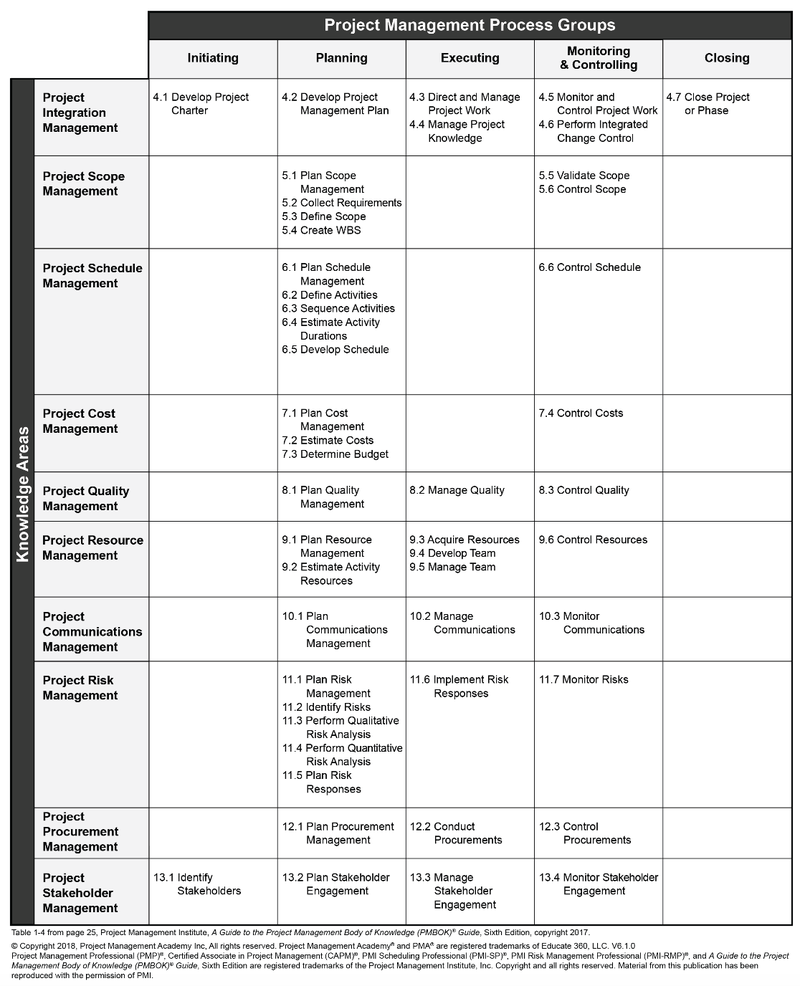



A Beginner S Guide To Project Management Process Groups The Blueprint
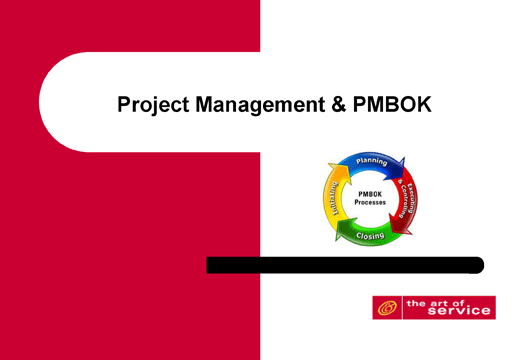



Pmbok S Five Phase Project Lifecyle An Overview It Business Edge
The five phases (aka process groups) of PMBOK mentioned below provide a structured, controlled, and timely process for efficient management of the project 1 Initiating The first phase of the project lifecycle is where the feasibility and value of the project are measured with the help of a business case and a feasibility studyDirect & Manage Project lose project/Phase Acquire Project Team Develop Project Team Manage Project Team Manage ommunication onduct Procurement Manage Stakeholders Engagement Monitor & ontrol Project Work Validate Scope ontrol Scope ontrol Schedule ontrol Quality ontrol ommunication ontrol Risks ontrol Procurement ontrol Stakeholders EngagementPhase 1 Conception & Initiation;
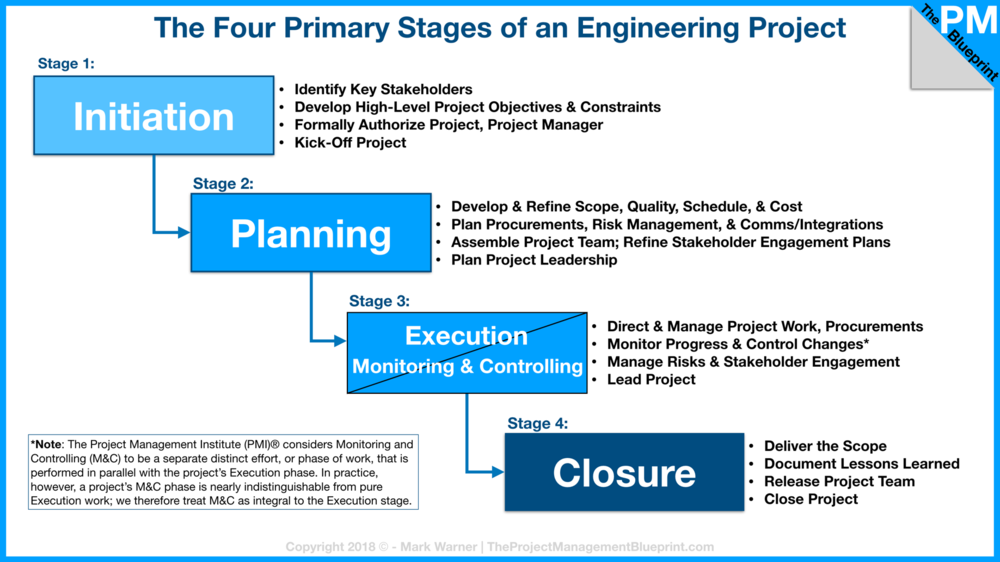



The Four Phases Of A Project The Project Management Blueprint Com




Pmbok Guide 5th Edition Processes Flow In English Pmbok Project Management Templates Process Flow
The Project Management Body of Knowledge (PMBOK) organizes project phases according to its life cycle, starting with Project Initialization and ends in Project Closure Each phase of the project life cycle consists of specific project objectives, results, deliverables, processes, and milestones, and it grants project managers and organizations more control over the projects theyProject monitoring & control; Project management knowledge areas coincide with the process groups, which are project initiation, project planning, project execution, monitoring and controlling, and project closing These are the chronological phases that every project goes through The knowledge areas take place during anyone of these process groups




Quality In Project Management A Practical Look At Chapter 8 Of The Pmbok Guide




Demystifying The 5 Phases Of Project Management Smartsheet
The project management process is a series of phases that represent the evolution of a product—from concept to delivery, maturity, and finally retirement The project management process is made up of 5 essential steps Project initiation & conception;A Guide to the Project Management Body of Knowledge (PMBOK ® Guide) – Seventh Edition and The Standard for Project Management Project Management Institute Global Headquarters 14 Campus Boulevard Newtown Square, PA USA Tel 1 610 356 4600 PMIorg PMBOK_Guide_7thED_cover_spreadindd 1 5/3/21 457 PM Waterfall Project Management vs Agile Project Management;




Pmbok Project Management Model Template Project Management Software Online Tools



The 10 Pmbok Knowledge Areas
IPECC, in the Project Management Body of Knowledge (PMBOK), is a popular PM approach that contains 5 phases Explore the IPECC systemPMBOK deals with the project management lifecycle from start to finish It describes 47 processes that managers would typically undertake when tackling a project and organizes them into five groups of processes which it tags with yet another acronym IPECC IPECC consists of groups of processes covering Project Initiation Here, we would be looking at how a project charter Principles of ProjectManagementBodyofKnowledge PMBOK documents the fundamentals and good practices of project management From the start of a project to its completion, through the planning, execution and control of tasks, this guide details the different stages of the life of a project He accompanies the project teams by giving the methodology to




Chronologically Structured Approach Controlling Closing Process
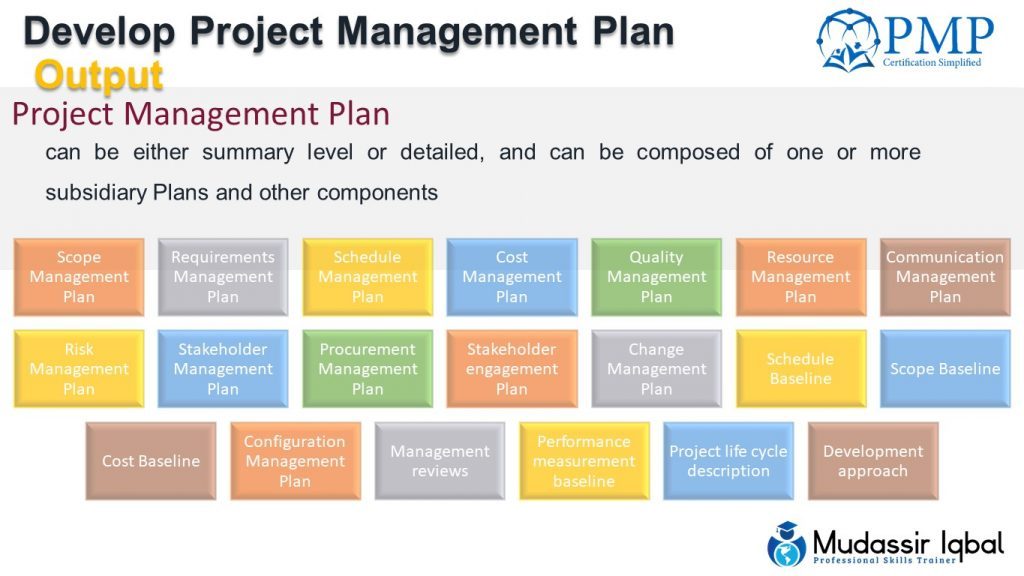



Planning Process Group Pmp Capm Pmbok 6 Eco 19 By Mudassir Iqbal Pmp
The Project Management Institute (PMI) has made it one of their aims to refine the project management process into a science Consequently, the project process set out in the PMI's PMBOK Guide has become the standard procedure forPhase 3 Project Execution;The 5 Phases of Project Management;
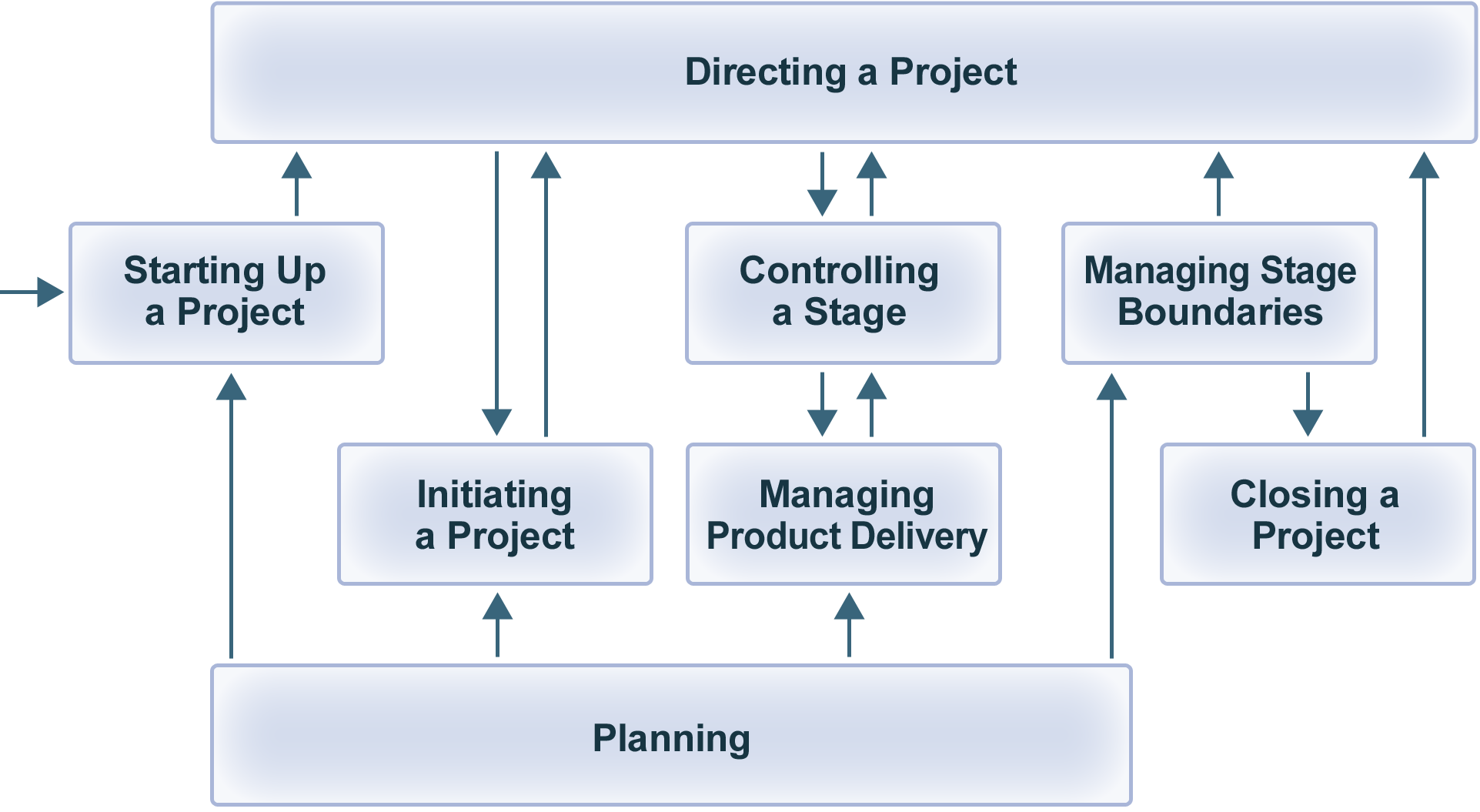



How Prince2 Can Complement Pmbok And Your Pmp Ceg
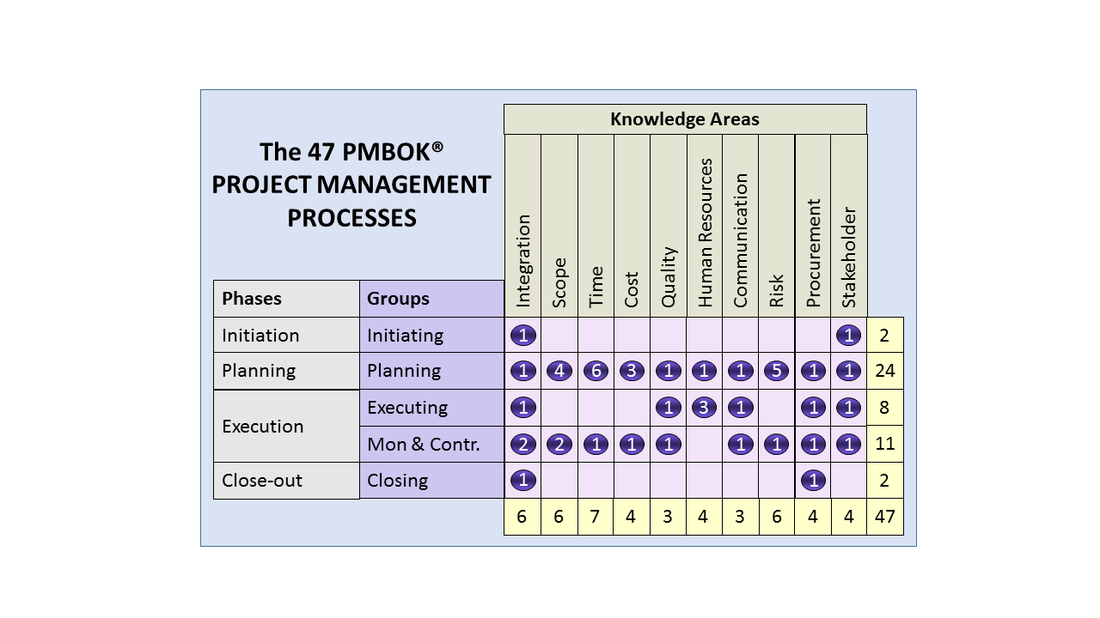



The 47 Pmbok Processes Made Simple Project Management Training Africa
In order to manage each of the 5 phases of a project, you'll need a solid understanding of these 10 knowledge areas, all of which can be found in the PMBOK Guide 1 Integration Management This is about bringing the many pieces of a project together so that you're managing one integrated project, as opposed to several disparate pieces This is anPhase 4 Project Monitoring;Actionable PMBOK process map We help project teams adhere to the PMBOK with lower cost and risks The JustinTime process map features a PMBOK process template that contains all the actionable work items your team need to manage projects with PMBOK Team members follow the steps and instructions in each work item to get the management
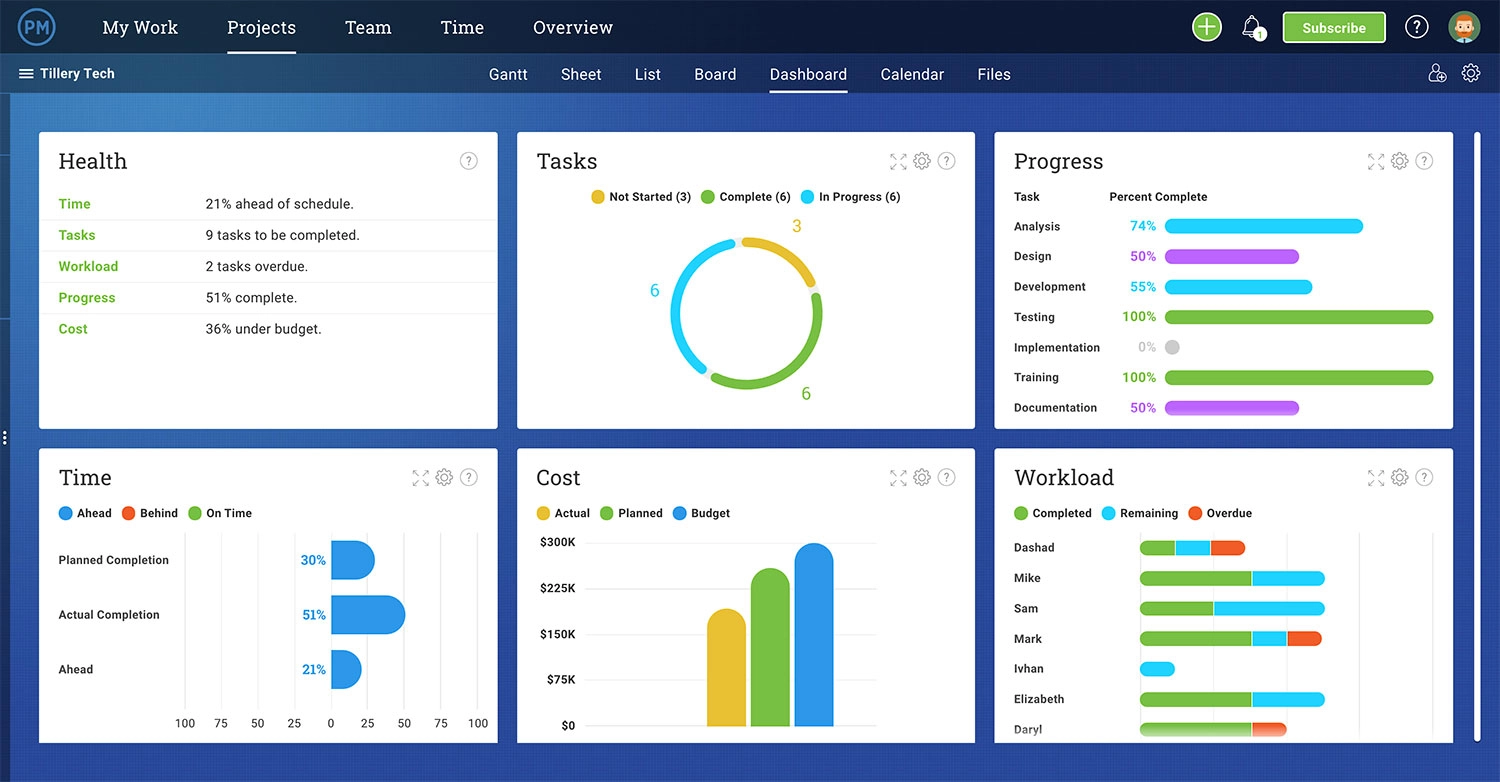



The 10 Project Management Knowledge Areas Pmbok
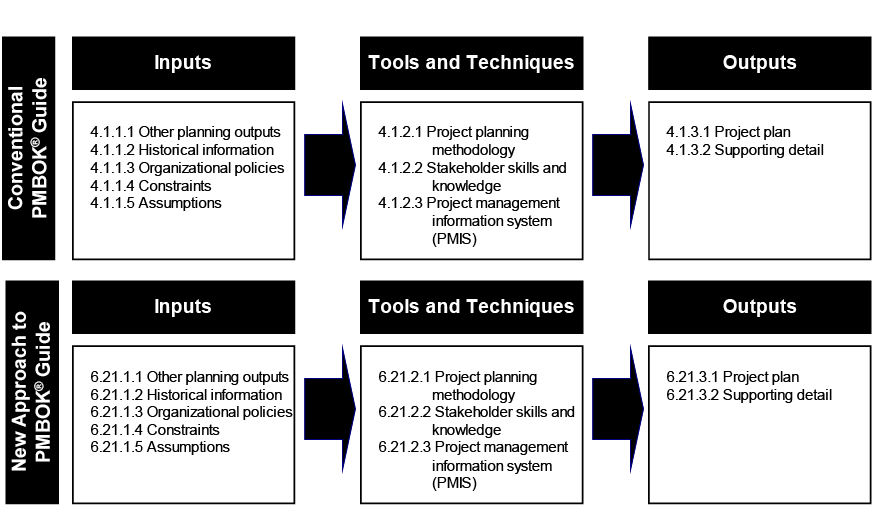



A New Approach To Pmbok Guide 00 Ricardo Viana Vargas
In the phases of the project management life cycle, you come up with the idea for a project, define its goals, plan for its execution, and guide it to completion 4 phases of the project management life cycle The project management life cycle is usually broken down into four phases initiation, planning, execution, and closure These phases make up the path that takes 5 Phases of Project Management; The Project Planning phase touches the most number of processes according to the Project Management Body of Knowledge (PMBOK) Per PMBOK, the following activities must be performed in the Project Planning phase They are organized by project management knowledge area Keep in mind that this is the full set of activities As a Project Manager




Sdlc In Project Management All Sdlc Phases With Examples




Pmbok Top 10 Takeaways For A Project Manager Ppm Express
Initiation phase The initiation phase is the beginning of the project In this phase, the idea for the project is explored and elaborated The goal of this phase is to examine the feasibility of the project In addition, decisions are made concerning who is to According to the PMBOK Guide (Project Management Body of Knowledge) by the Project Management Institute ( PMI ), a project management life cycle consists of 5 distinct phases including initiation, planning, execution, monitoring, and closure that combine to turn a project idea into a working product Five phases of project management3/11/16 Project Management Essentials Carlos M Jarrin Five Basic Phases of Project Management Project Management Institute, Inc (PMI) defines project management as "the application of knowledge, skills, tools and techniques to




The Process Groups Processes Of Project Management Download Table




Ultimate Project Management Process Map Pmbok 5th Edition True Solutions Inc Amazon Com Books
Project time management Project cost management Project quality management Project human resource management Project communications management Project risk management Project procurement management Project stakeholder management Additional Resources Conquer Project Time Management With the PMBOK ® Guide Approach The PMBOK Process Groups / Life Cycle Stages (#9 in the series PMI Project Life Cycle) By Brian Denis Egan, BSc, MSc, MBA, PMP – Global Knowledge Course Director Process groups (or life cycle stages) are defined by the activities they include It is helpful to have a big picture view of where each of the process groups begins and ends This particular PMBOK knowledge area touches the five phases of the project – Initiation, Planning, Execution, Monitoring and Controlling, and Closing Starting from scheduling tasks, purchasing tasks, replacing team members, addressing risks, and rescheduling tasks everything is covered under this particular phase




Project Risk Management Process Based On Pmbok Guide 5 Download Scientific Diagram




Pmp Pmbok Project Management Process Groups Five Youtube
Phase 4 Project Performance & Project Controlling;Phase 5 Project Closure;Phase 3 Project Execution;




Project Managing The Sdlc
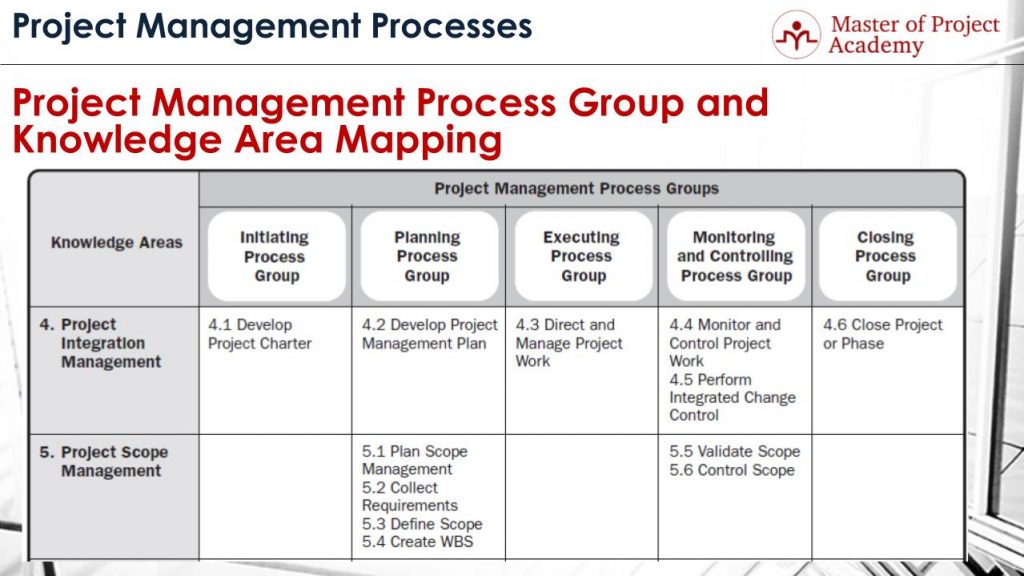



21 Pmbok Knowledge Areas 10 Pm Knowledge Areas
Phases in a project cycle An understanding of the life cycle is important to successful completion of the project as it facilitates to understand the logical sequence of events in the continuum of progress from start to finish Typical project consists of four phases Conceptualization, Planning, Scope Time Cost Figure 1 Project performance dimensions 3 Execution and Termination EachThe Project Management Phases How to Manage a Project Step by Step Above, we covered the five stages of the project management life cycle Now it's time to put that information to practical use In this section of the guide, we are going to break down each stage with actionable steps that outline how to manage a project Initiation Phase Abstract and Figures he main objectives of this Project Management Handbook (PMH) are to raise understanding regarding project management and provide an adaptable guidance for project
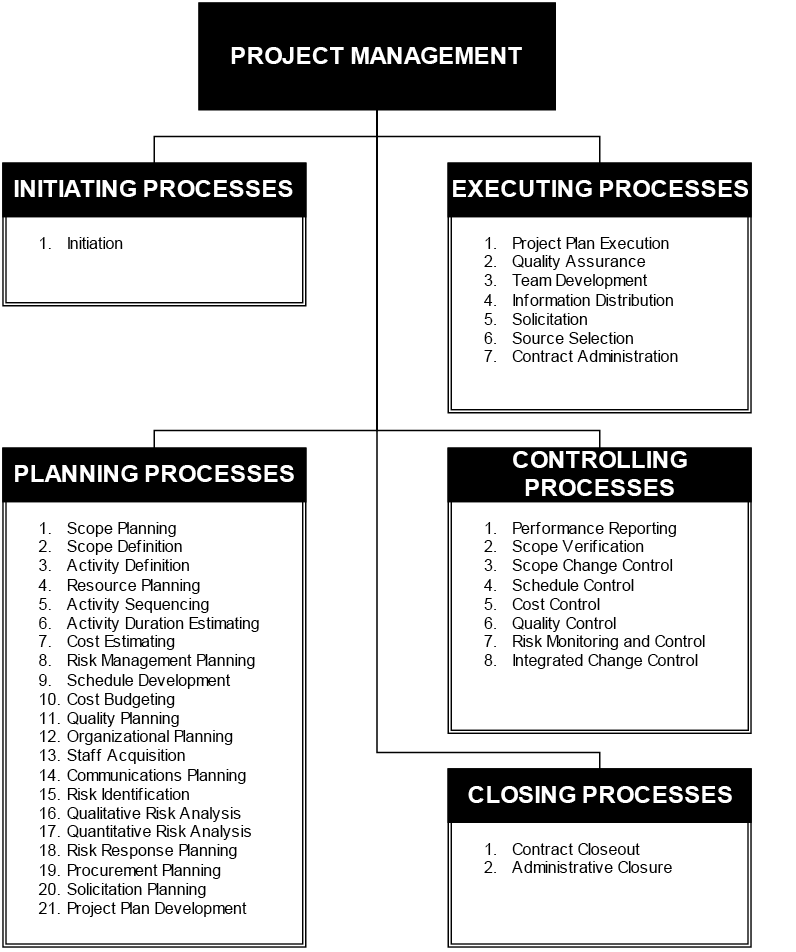



A New Approach To Pmbok Guide 00 Ricardo Viana Vargas
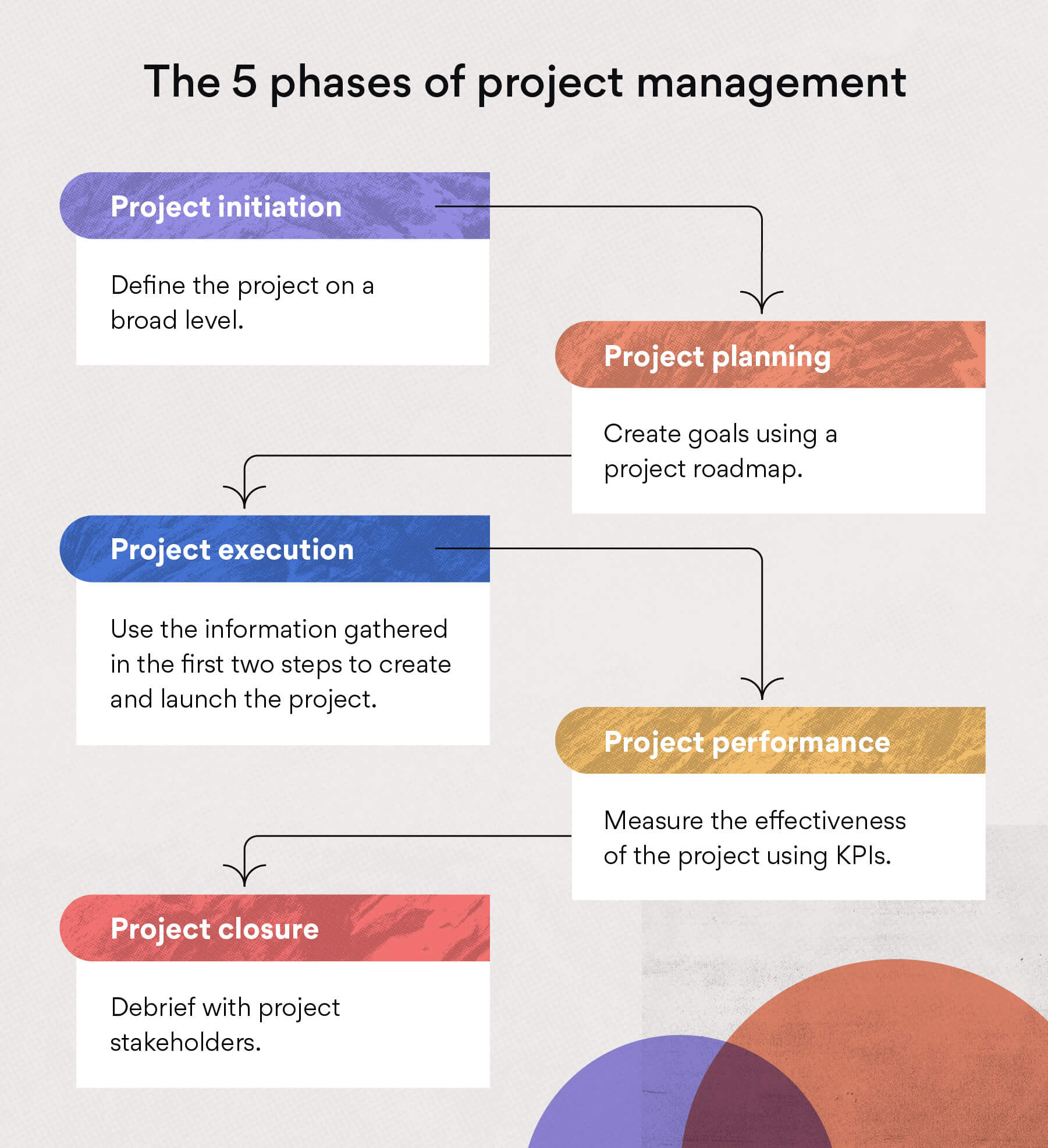



5 Project Management Phases To Improve Your Team S Workflow Asana
Projects don't just jump from point A to point Z Project management will guide you through the different stages of your project and help you tackle it strategically Move through the phases in order and, much like Sofia and her team, you'll be ready to pat yourselves on the back for yet another project winPhase 5 Project ClosureThe PMI framework of project management consists of 49 processes which are categorized in 10 knowledge areas as set out in the Project Management Body of Knowledge (PMBOK®, 6 th edition) This is based on the philosophy that project management consists of a oneoff and recurring processes for which the PMBOK describes common good practices When you are
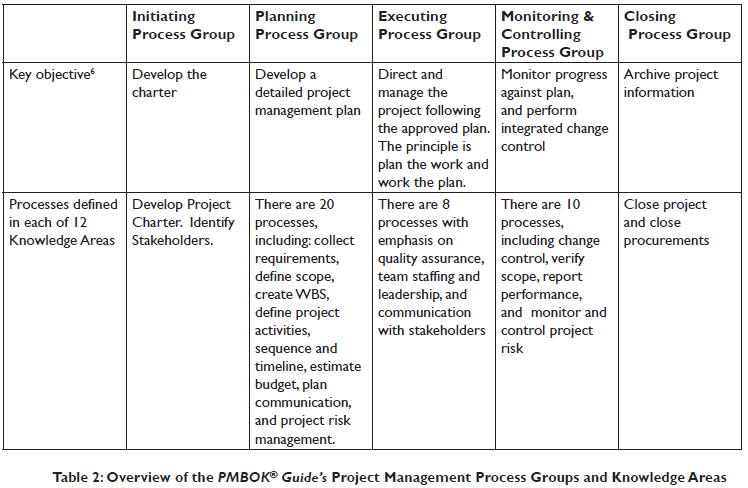



Projectmanagement Com The Harmonization Of Dmaic And The Pmbok Guide For Pharmaceutical Lean Six Sigma Projects



The 10 Pmbok Knowledge Areas
PMBOK defines project management as the application of knowledge, skill, tool and techniques to project activities in order to meet stakeholder's needs and expectations from a project Bridge group defines it as the methods and disciplines used to define goals, plan and monitor tasks and resources, identify and resolve issues, and control costs and budgets for a specific project 13




What Is Pmbok Defintion Knowledge Areas Project Phases Toolshero




What Are The Phases Of Project Management
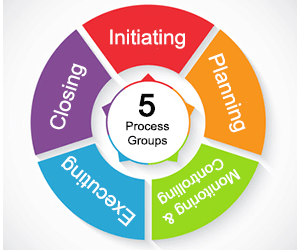



The Five Pmbok Process Groups




A Breakdown Of The 5 Phases Of Project Management Zenkit




Project Management Life Cycle Complete Guide To Project Delivery




Project Planning Process Navigate The Many Steps You Need




Pmbok Software Process Map And More
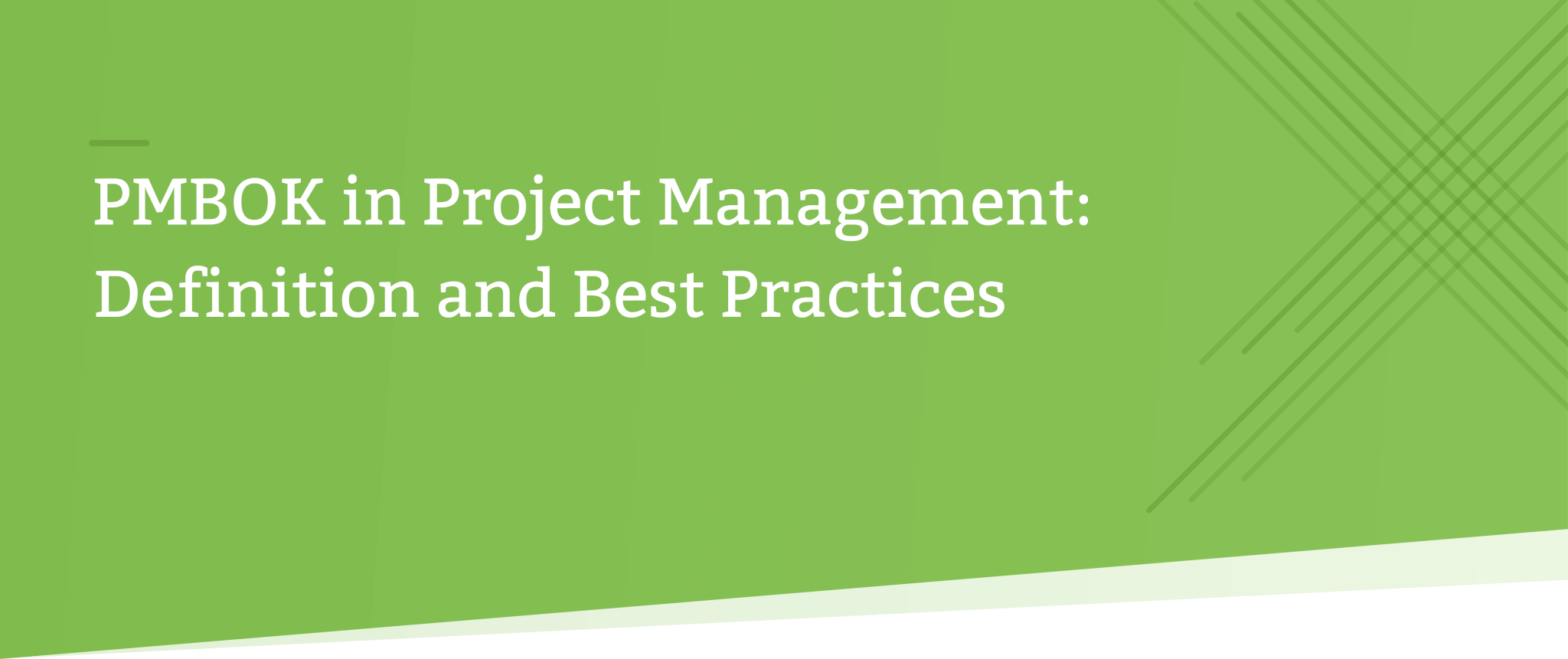



Pmbok In Project Management Definition And Best Practices Tallyfy




Pmbok Process Symphony Itsm Knowledge Orchestrators




Pmbok Architecture Project Management Processes Can Be Divided Into Download Scientific Diagram




Pmbok Vs Prince2 Prince2 Vs Pmbok Pmbok Pmbok Guide Knowledge Train




Project Management Best Practices




Essentials Of Project Management Sukad Learning Pmbok Project Management Project Life
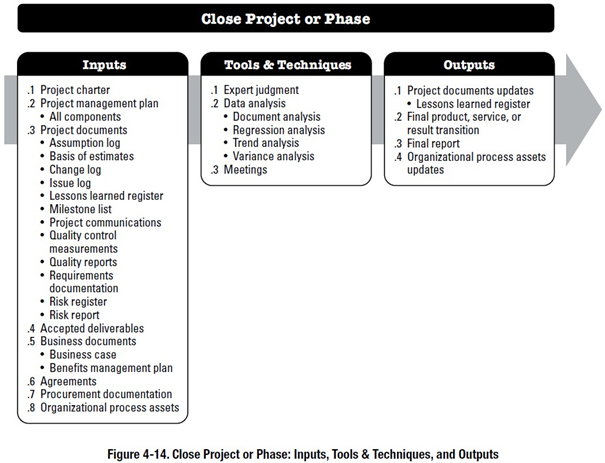



Closing A Project Or Phase Project Management Professional Pmp
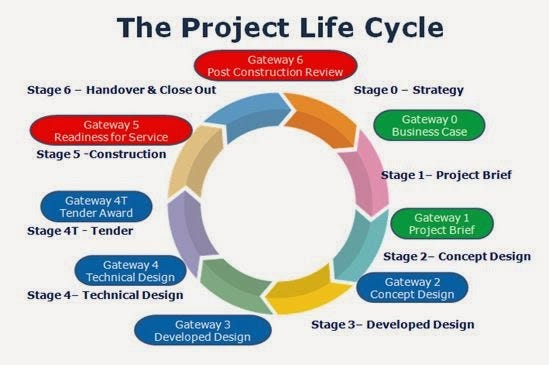



Project Life Cycle Vs Project Management Lifecycle Project Methodology Vs Project Management By Ravindran V Medium




Phases Of Project Management Based On Pmi Source Author Download Scientific Diagram



Pmi Process Groups Overview Of The Project Phases Projectbliss Net




Pmbok 6th Edition A Guide To Better Project Management Lucidchart Blog




Agile Project Management And The Pmbok Guide



How To Implement Project Management In A Not For Profit Environment 1 Applied Project Management
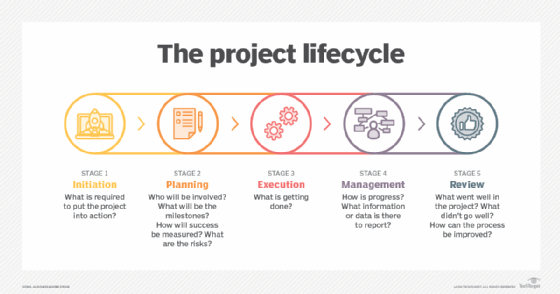



What Is A Project Management Framework




5 Phases Of Project Management Process A Complete Breakdown




Project Management Body Of Knowledge An Overview Sciencedirect Topics




Pmbok 6th Edition A Guide To Better Project Management Lucidchart Blog
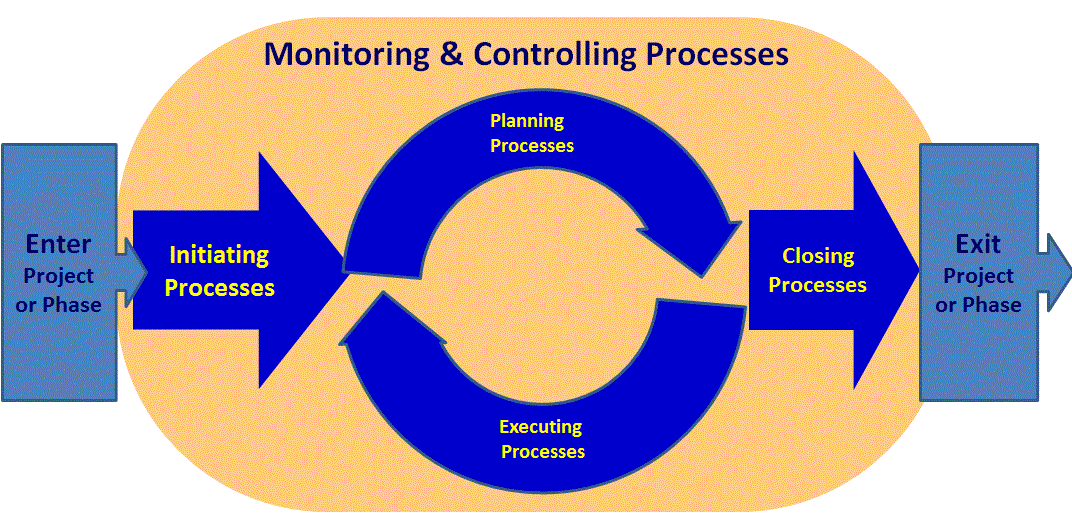



Product Lifecycle Vs Project Lifecycle Firebrand Learn




Iso 12 And Pmbok 5 Processes In Information Systems Project Management Sciencedirect




Pmbok Process Template Project Management Tool Youtube




Advanced Project Management Review Ghazala Amin 1 The




How To Memorize The 49 Processes From The Pmbok 6th Edition Process Chart Youtube




Agile Project Management And The Pmbok Guide




Agile Project Management And The Pmbok Guide




What Is Project Management 21 Project Management Guide



Leadinganswers Leadership And Agile Project Management Blog Pmbok V4 Process Mappings Large Format




How To Memorize The 49 Processes From Pmbok 6th Edition In Under 30 Minutes Examspm Com
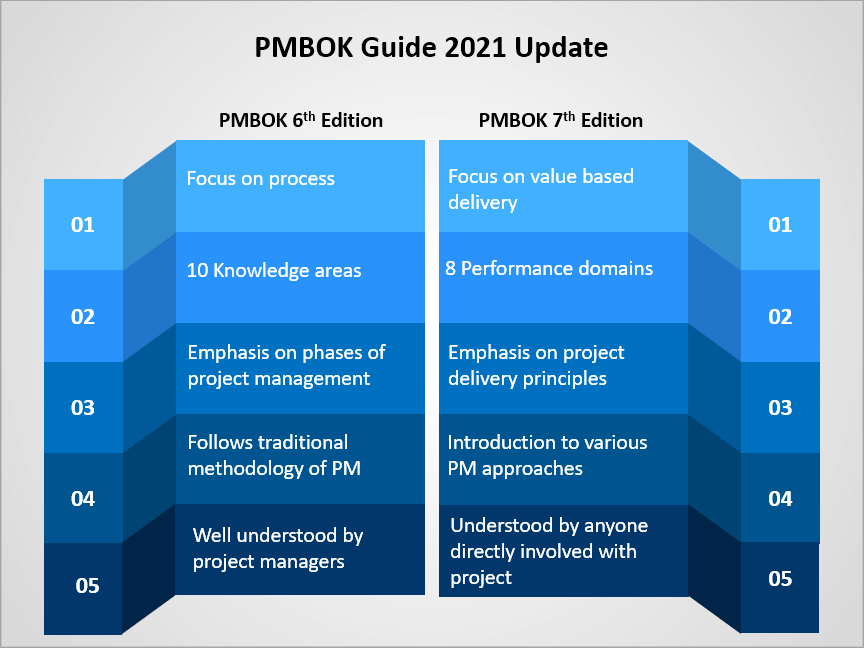



All You Need To Know About Project Management Body Of Knowledge Pmbok Guide 7th Edition Unichrone
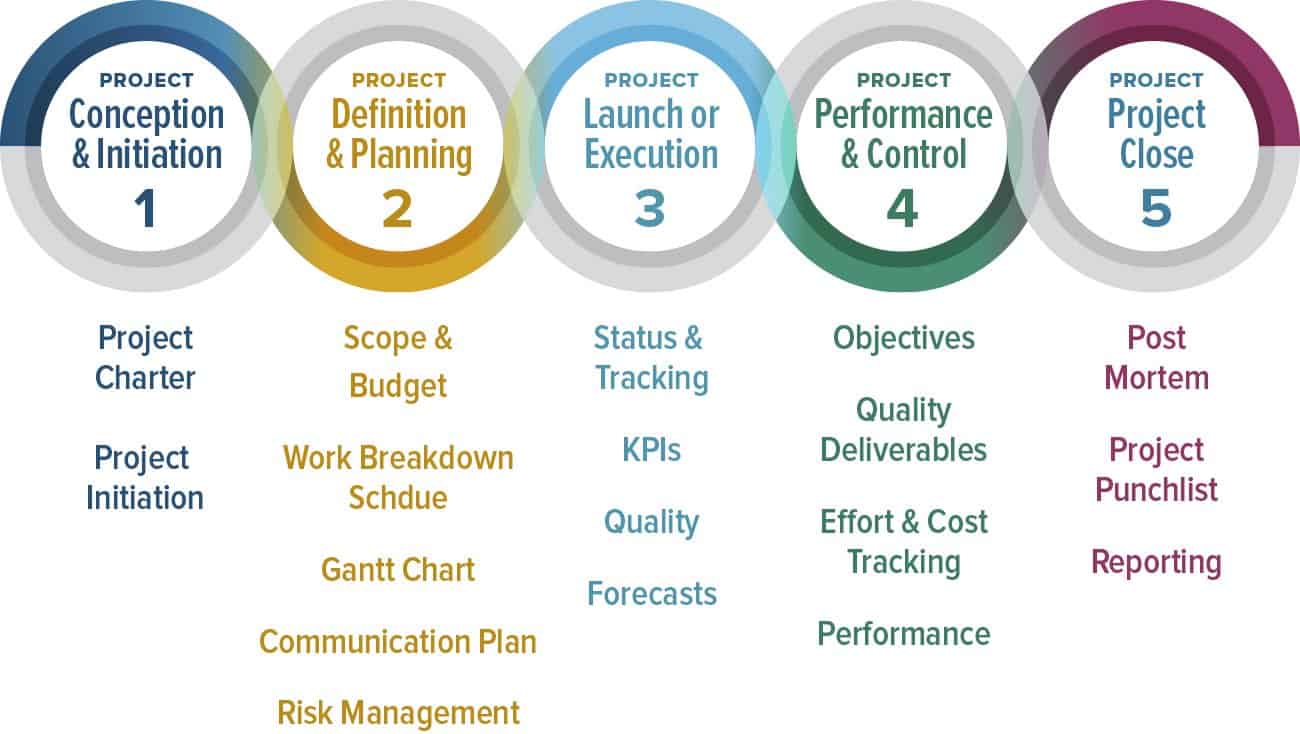



A Complete Guide To The Pmi Pmbok Method Smartsheet




Demystifying The 5 Phases Of Project Management Truenxus Blog
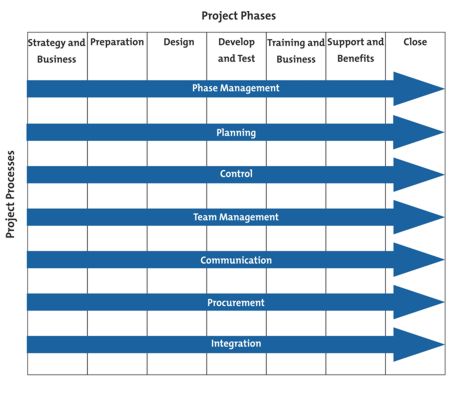



Project Management Phases And Processes From Mindtools Com
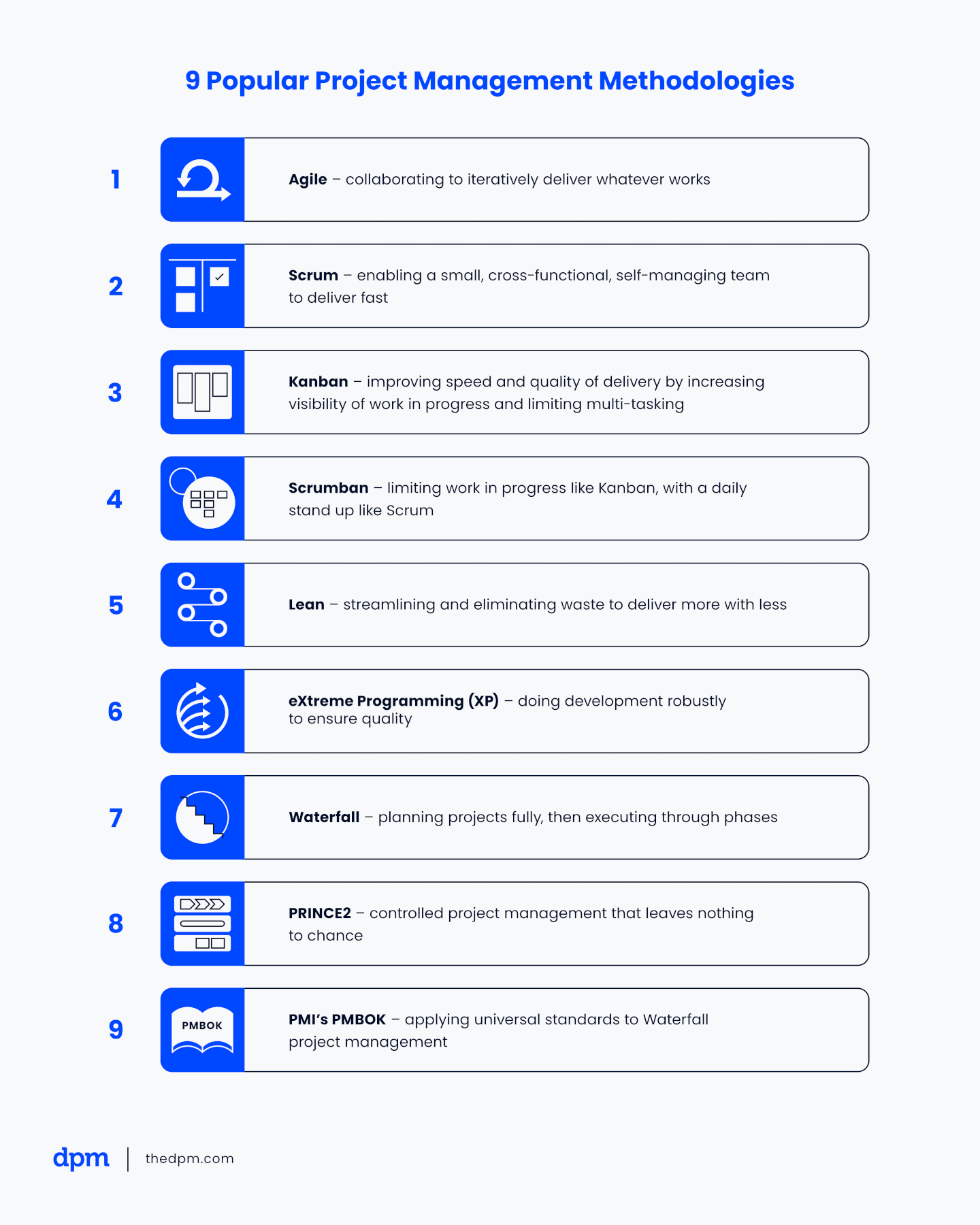



9 Of The Most Popular Project Management Methodologies Made Simple




Generating Value By Managing The Project Lifecycle Value Generation Partners Vblog
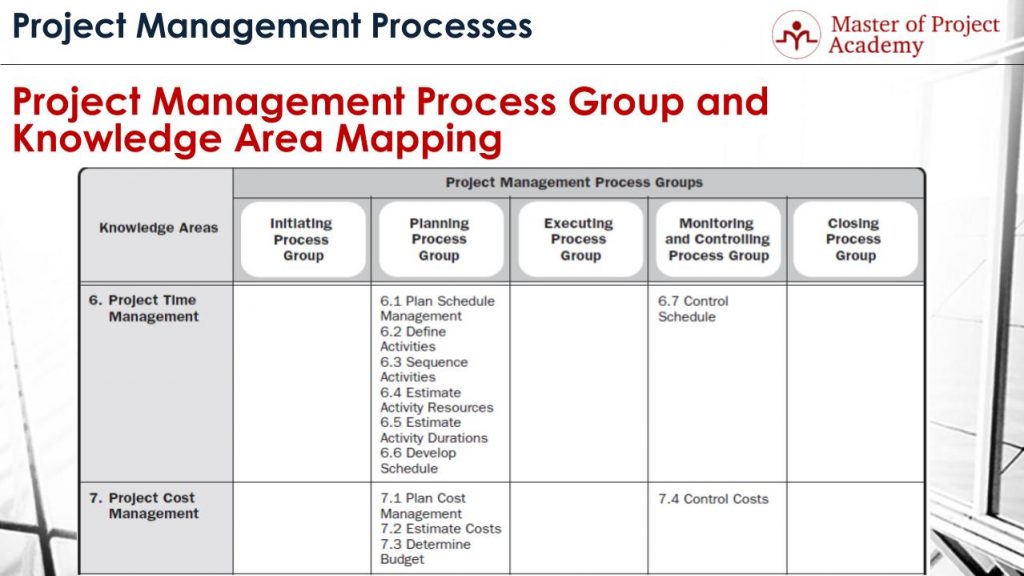



21 Pmbok Knowledge Areas 10 Pm Knowledge Areas




The Five Traditional Process Groups Explained Project Management Academy



The 10 Pmbok Knowledge Areas




How To Use The Pmbok Guide In Practical Project Management Slidemodel




Ultimate Project Management Process Map Pmbok Guide Fourth Edition True Solutions Inc True Solutions Inc True Solutions Inc Amazon Com Books
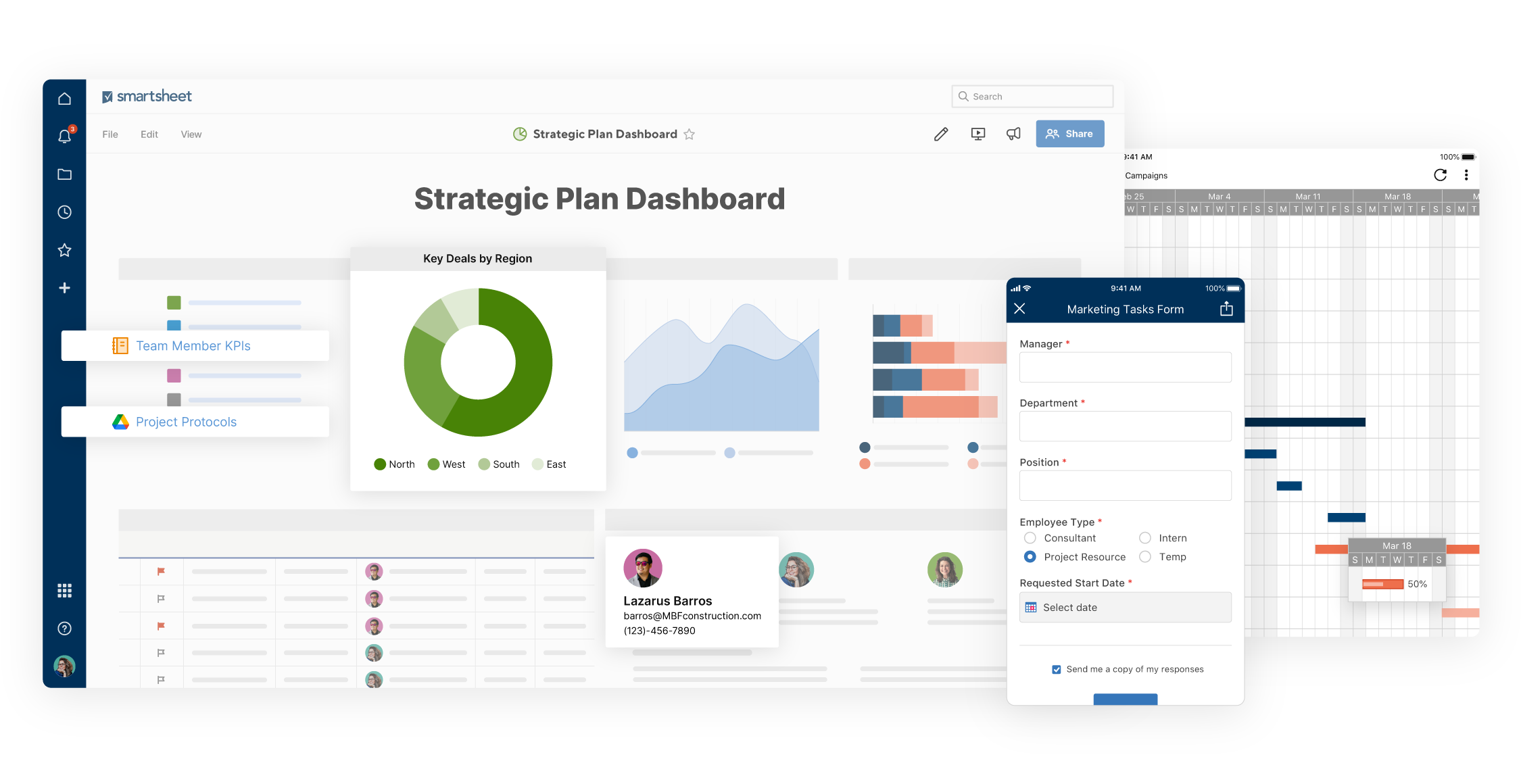



Demystifying The 5 Phases Of Project Management Smartsheet
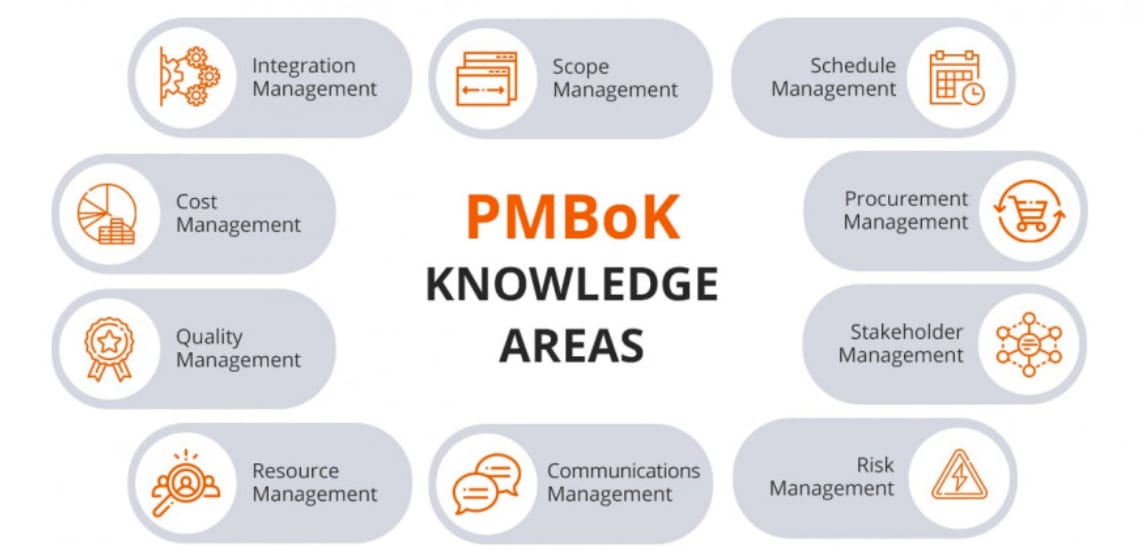



A Guide To Project Management Knowledge Areas Monday Com Blog




Pmbok 6 The 10 Knowledge Areas 49 Processes



1




Project Management Body Of Knowledge Pmbok Notes Project Life Cycle And Organization Chapter 2 Kevin Berardinelli



Desai Management Consulting
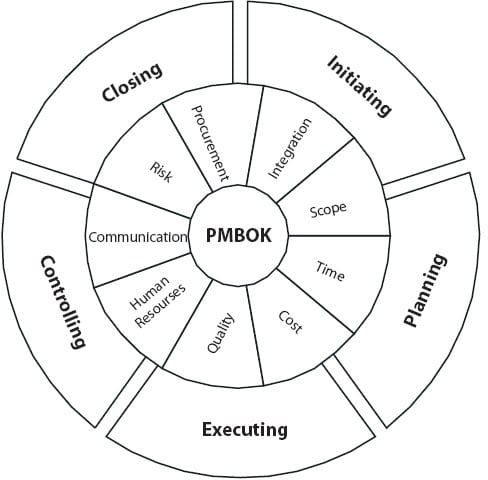



Guide To Project Management Process Groups Monday Com Blog
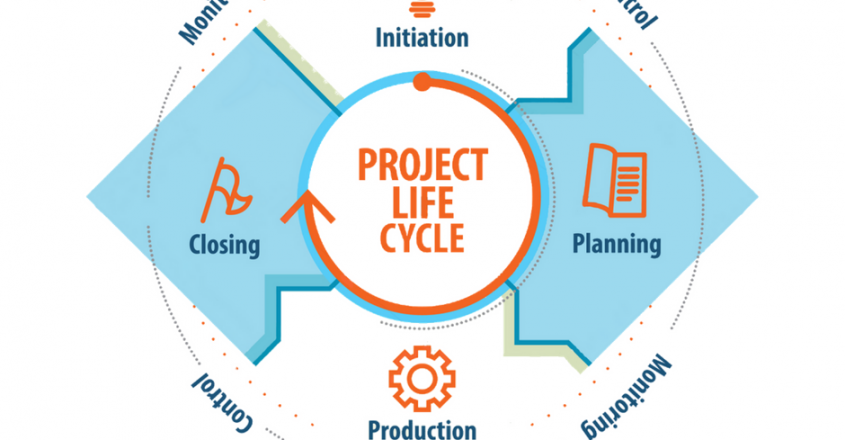



Project Life Cycle Phases And Characteristics




5 Phases Of Project Management Process A Complete Breakdown



Project Integration Management



Expert Project Management Redefining Pm
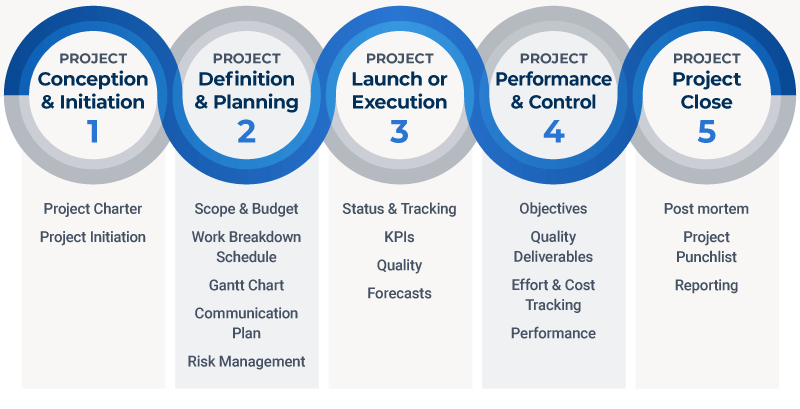



Demystifying The 5 Phases Of Project Management Smartsheet
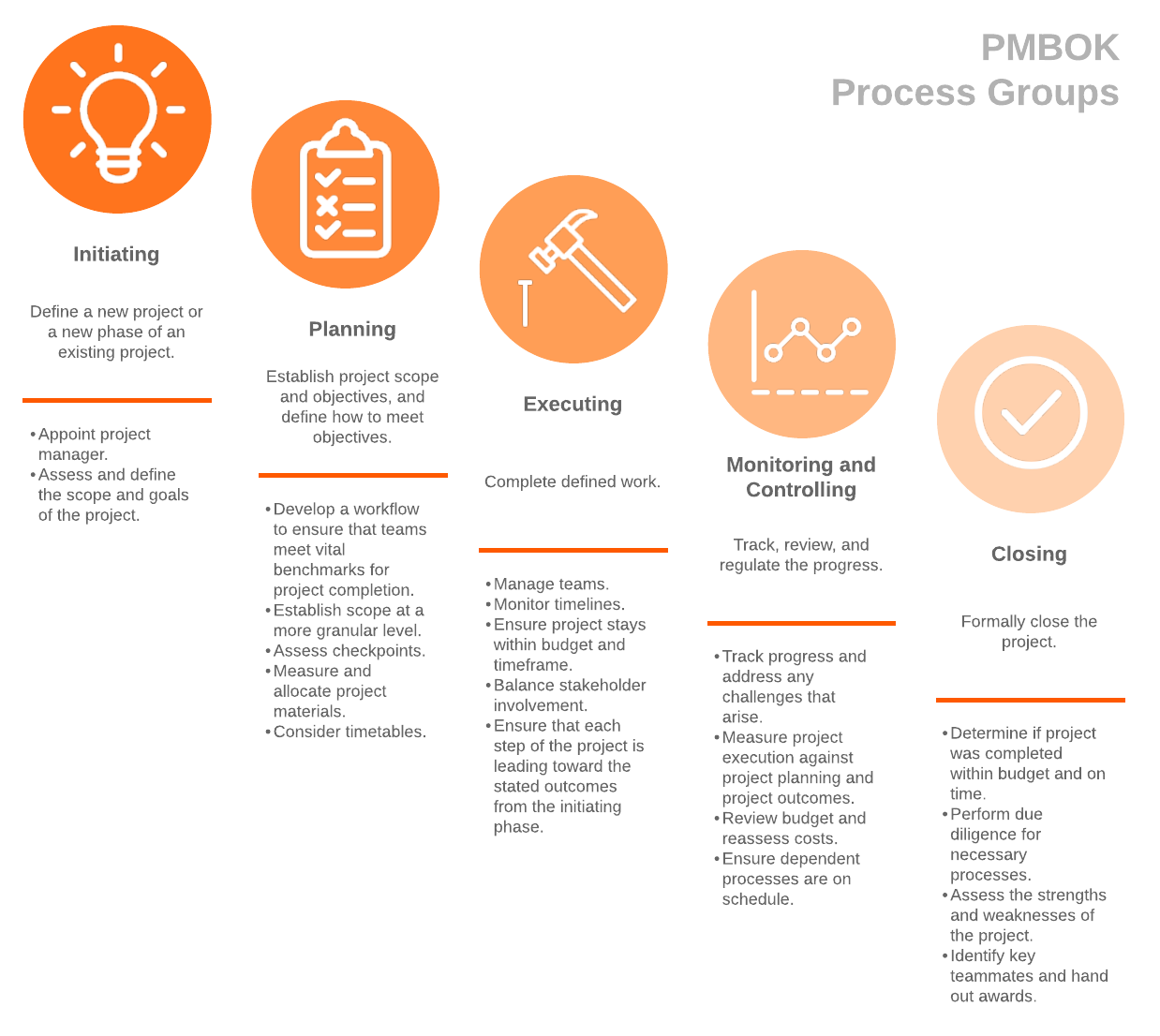



Pmbok 6th Edition A Guide To Better Project Management Lucidchart Blog




What Is Pmbok Defintion Knowledge Areas Project Phases Toolshero




Project Phases A Practical Overview With Real Project Examples




A Guide To Project Initiation



1
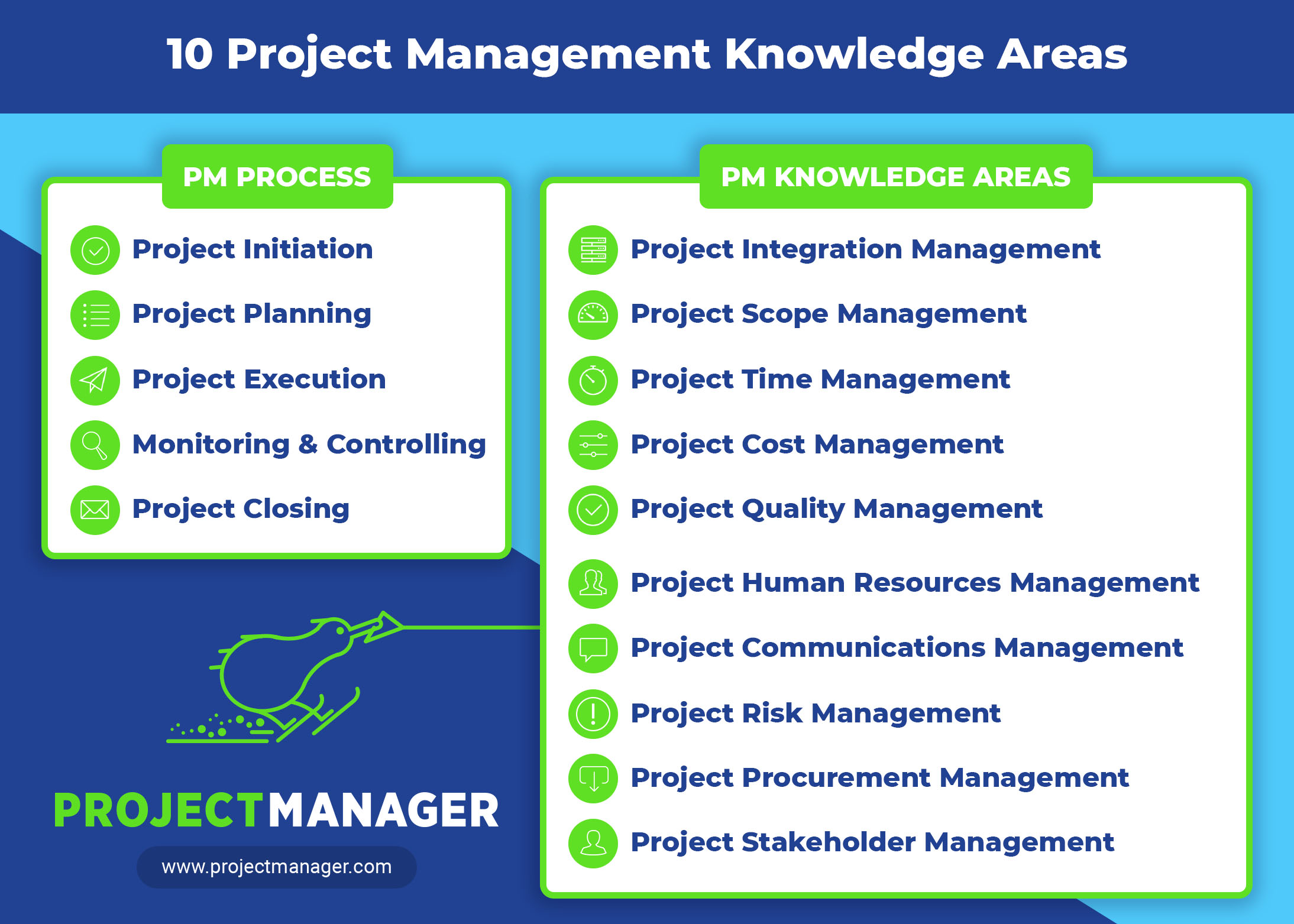



The 10 Project Management Knowledge Areas Pmbok




What S The Difference Between Project Life Cycle And Project Phase Magoosh Pmp Blog




The Pmbok A Project Management Study Guide Or A Reference Pmhut Project Management Articles For Project Managers
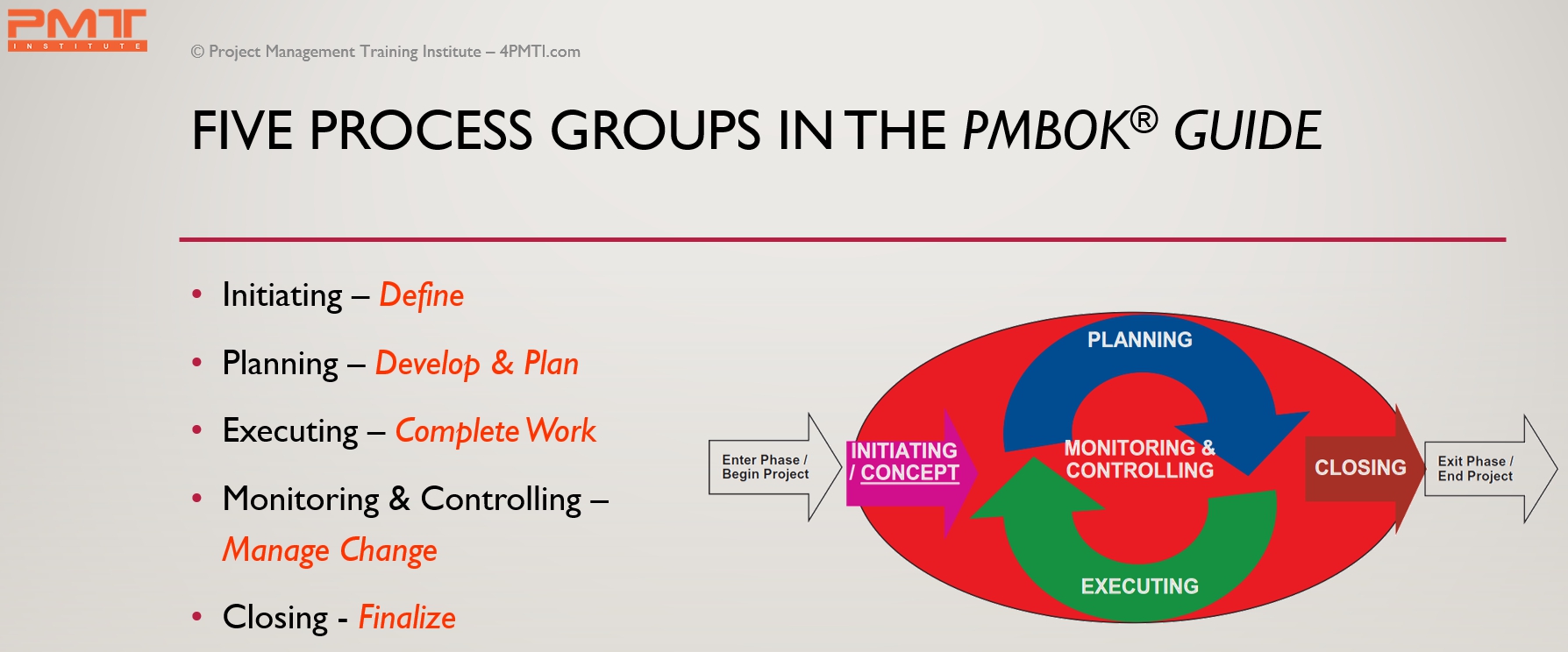



Pmbok Guide And Other Top Pmi Standards Project Management Training Institute
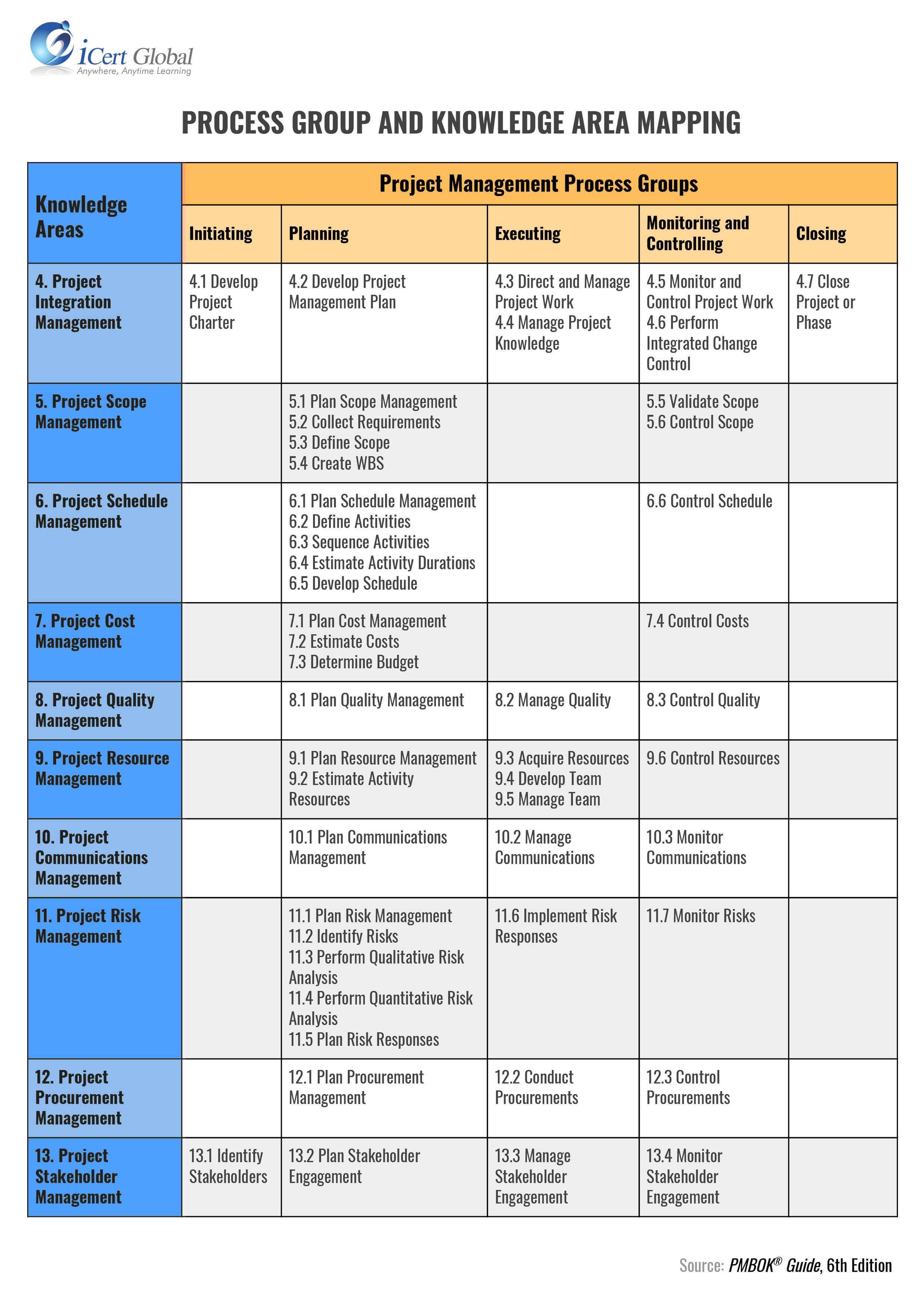



What Are The 49 Project Management Processes Icert Global



1
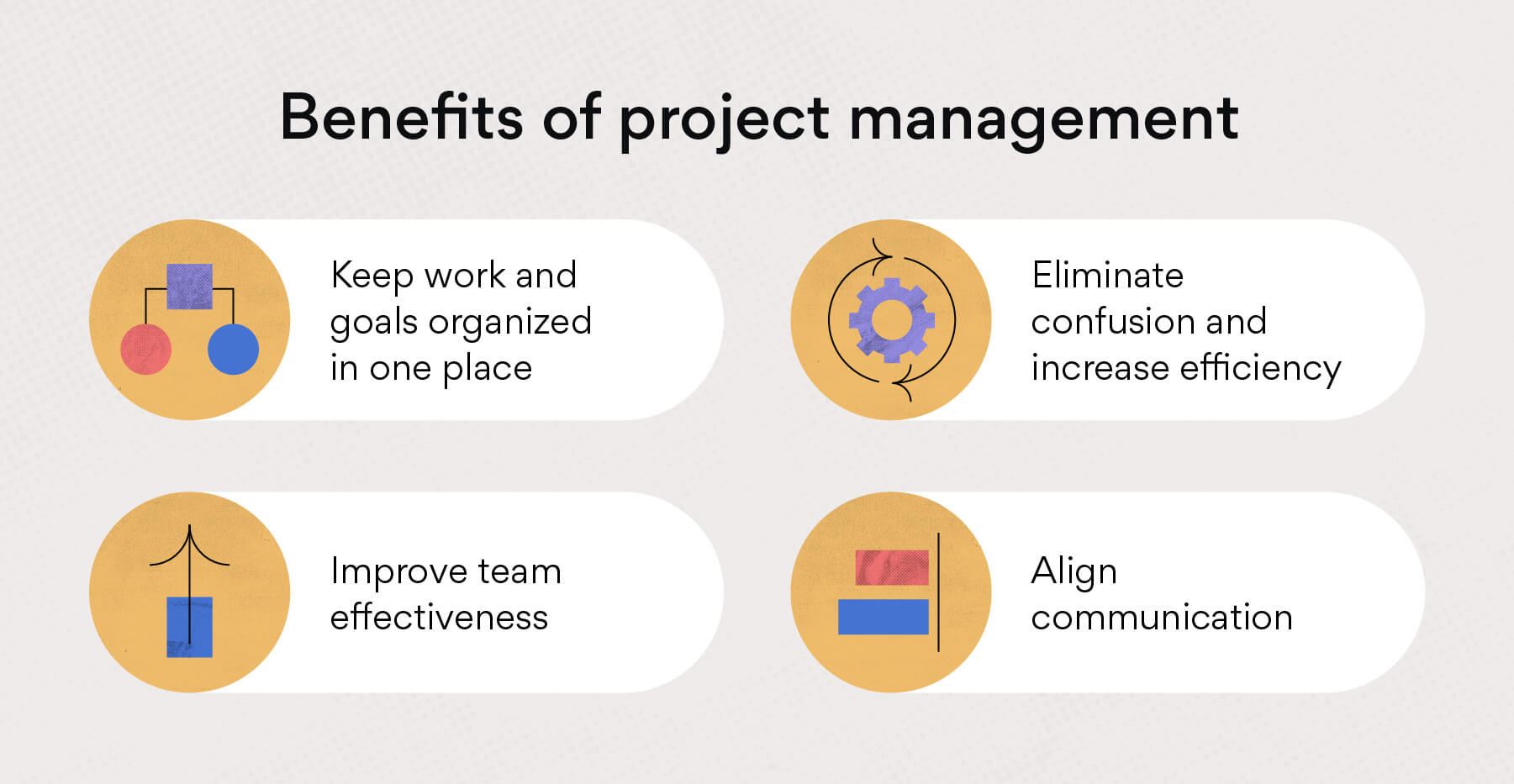



5 Project Management Phases To Improve Your Team S Workflow Asana




Download Pmbok Guide 6th Edition Process Group And Knowledge Area Mapping Table Pm Hangout




04 Project Process Groups And Tailoring Pmp Capm And Pmbok Training




Pmbok Process Groups Part 3 Custom Web Mobile Development Company New Line Technologies
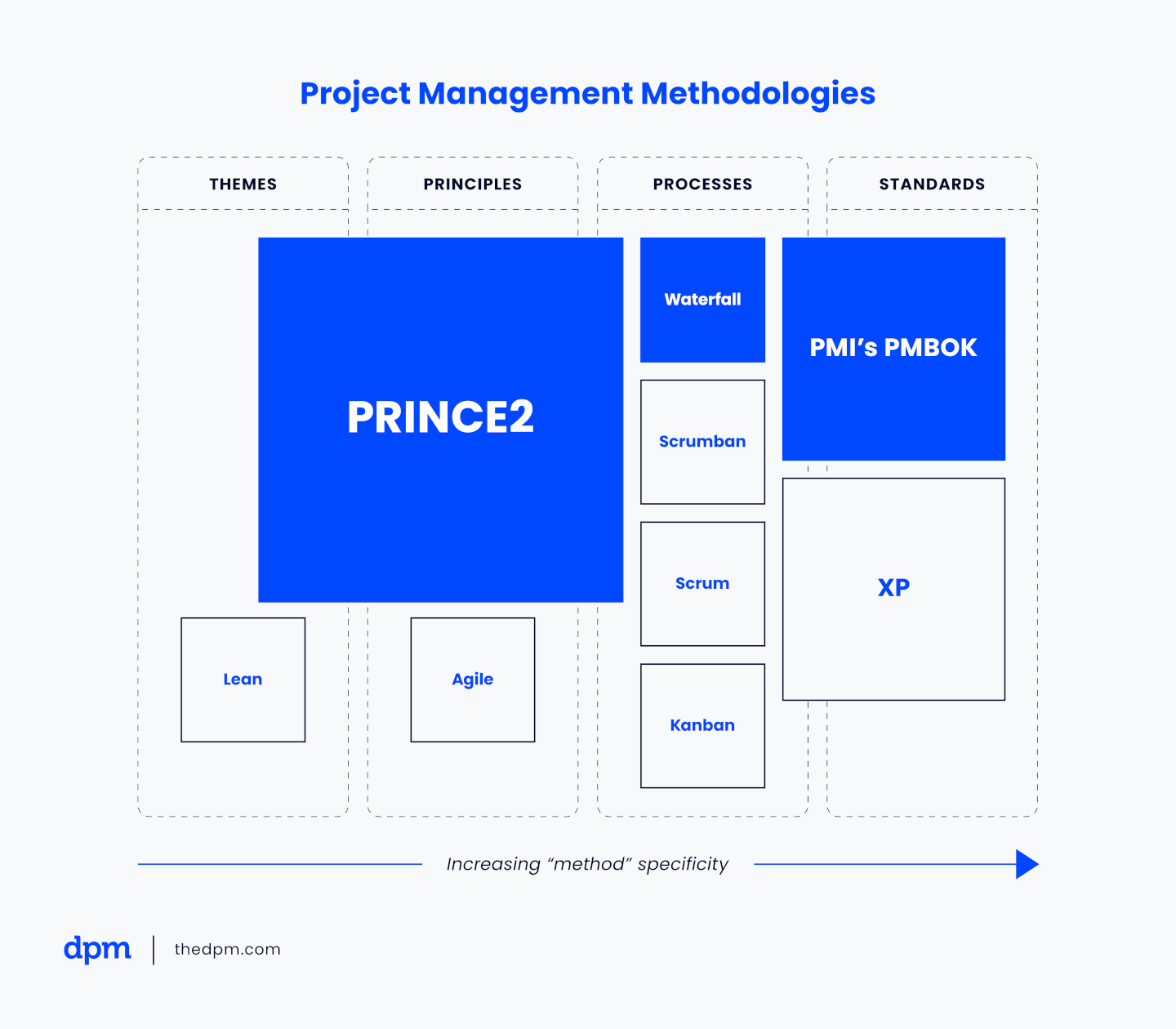



9 Of The Most Popular Project Management Methodologies Made Simple




Project Management Knowledge Areas Mindgenius
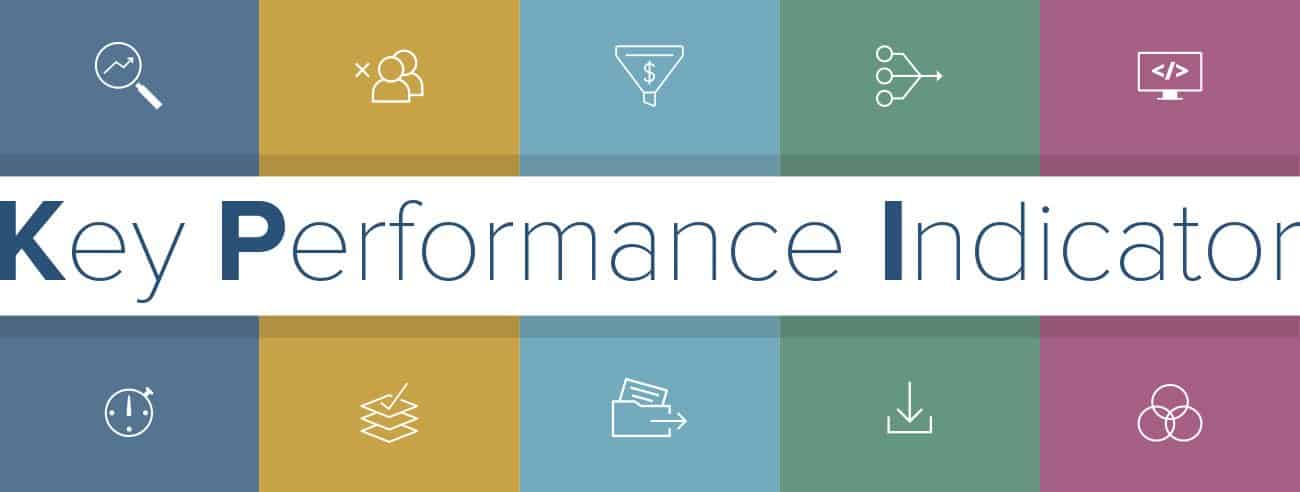



Demystifying The 5 Phases Of Project Management Smartsheet




Project Management Phases Pmi Archives Pmc Lounge



1




Pmbok Process Map 5th Edition Sean T Scott
コメント
コメントを投稿